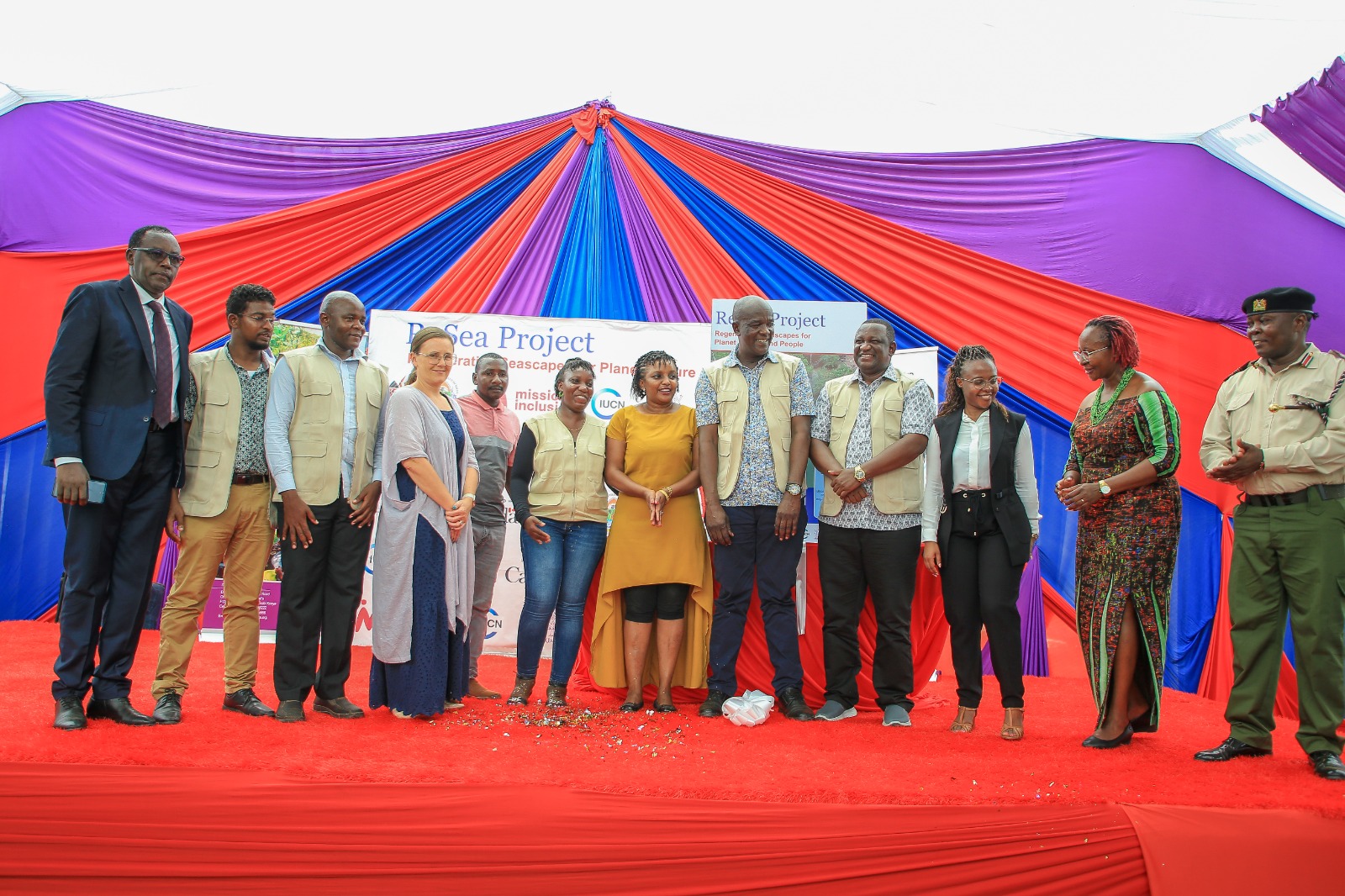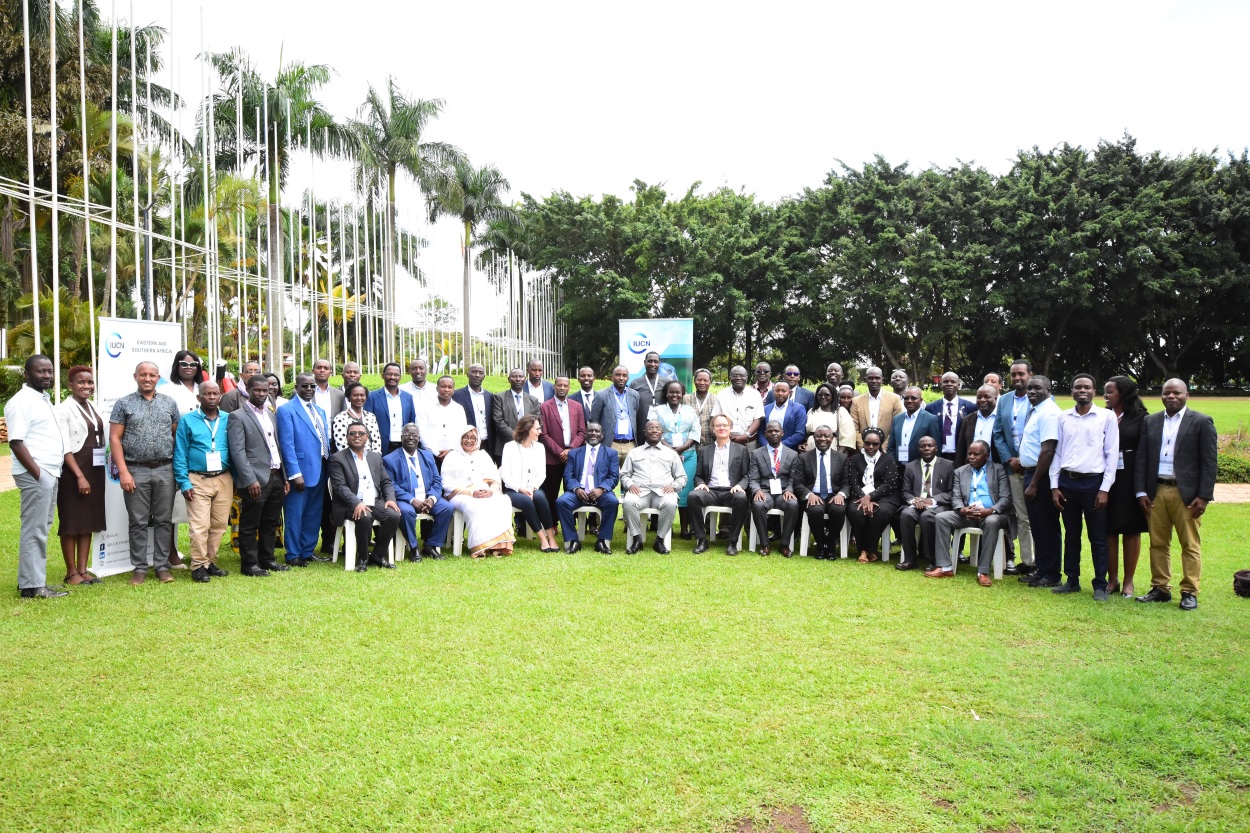IUCN awards four new initiatives to address the linkages between gender-based violence and the environment
Washington DC, April 25, 2024 — Four new projects are addressing gender-based violence in the context of climate and conservation action through funding from the Resilient, Inclusive and Sustainable Environments (RISE) grants challenge across Central America, Eastern and Southern Africa and Southeast Asia.

In its landmark study, Gender-based violence and environment linkages: the violence of inequality, IUCN found that gender-based violence is systematically used to uphold existing gender norms on who can engage in, lead, or contribute to environmental sustainability. As a result, human rights are violated. As numerous examples from around the globe demonstrate the value of gender equality and women’s empowerment toward global environmental goals, gender-based violence also negatively affects efficiency towards solving concurrent planetary environmental crises driven by climate change, biodiversity loss, environmental degradation and pollution.
The RISE grants challenge is the first in the world dedicated to addressing gender-based violence challenges, threats and risks in relation to environmental sectors, issues and work. Funded by the United States Agency for International Development (USAID) and the Norwegian Agency for Development Cooperation (Norad), the Resilient, Inclusive and Sustainable Environments (RISE) grants challenge is managed by the International Union for Conservation of Nature (IUCN) to support partnerships between environmental organisations, community-based organisations and leaders, and organisations with experience addressing gender-based violence.
"Each project supported by the RISE grants challenge brings us closer to a world where gender equality and environmental sustainability are not only interconnected but also mutually reinforcing. Our commitment to this cause is unwavering, as we continue to advocate for and invest in solutions that address the dual challenges of gender-based violence and environmental crisis."
– Razan Khalifa Al Mubarak, IUCN President
Meet the new RISE winners
This year, for Mother Earth Day, IUCN, USAID and Norad announced the four new winners of the RISE grants challenge. These winners emerged from 814 submitted applications and responded to IUCN’s call for partnerships to develop solutions and contribute to global learning on how environmental programmes can address gender-based violence and conservation and climate linkages.
Addressing gender-based violence in climate action
In sub-Saharan Africa, two new RISE projects will work on gender-based violence in climate action. In the eastern Democratic Republic of the Congo (DRC), the project Resource-ful Empowerment: Addressing Violence for the Green Transition will address the high levels of sexual exploitation women face in Artisanal and Small-Scale Mining (ASM) sites, which produce up to 70% of the minerals that fuel the greening of the global economy through clean technologies, including the ‘3T’ minerals: tin, tantalum, and tungsten. The project builds upon a successful RISE pilot project called ‘Resource-ful Empowerment’ and is led by Action to Protect Women and Abandoned Children (ASEFA), Support Group for the Integrated Management of Natural Resources for Human Rights and Sustainable Development (GIRENAD), Solidarité des Femmes pour le Développement Intégré (SOFEDI) and The Harvard Humanitarian Initiative (HHI).
In Kenya, the project Women RISE for Nature (WR4N) will enable TMG Research gGmbH (TMG), Rainforest Foundation UK (RFUK), Kenya Land Alliance (KLA) and Shibuye Community Health Workers (SCHW) to integrate gender-based violence within a decentralised tenure rights reporting and monitoring tool they have developed called Haki Ardhi (‘land justice’ in Swahili). This will help community-based organisations identify hotspots and deploy legal and psychosocial support where physical and verbal violence is used to infringe upon women’s tenure rights resulting from carbon credit programmes, which can unintentionally fuel tensions and competition over land that disproportionately affect women.
Photo: TMG Research gGmbH
Indigenous and marginalized women breaking barriers to resist gender-based violence in their environmental work
In Latin America and Asia, two new RISE grants challenge projects will work with Indigenous and marginalised women to break barriers and resist the ways in which gender-based violence is used to control women and their rights to environmental defense and build sustainable livelihoods in climate-vulnerable contexts.
In Guatemala, the project Cultivating Change and Breaking Barriers: Combating Gender-Based Violence through Women's Cooperatives in Guatemala is led by the Justice Education Society of B.C (JES), Fundación Red de Sobrevivientes de Violencia (Foundation Network of Violence Survivors) and La Asociación de Desarrollo Productivo y de Servicios Tikonel (Tikonel). Within project sites, Indigenous women within agricultural cooperatives have cited intimate partner and domestic violence when negotiating time and roles dedicated to sustainable livelihoods with male family members. Partners are piloting an initiative with Guatemala’s newest, 100% indigenous, rural and women-owned farming cooperative to address this challenge while supporting the replication of intervention techniques through training, reflection, awareness building and collaboration with other women-owned cooperatives.
In Nepal’s Kailali District, indigenous Tharu and Dalit hill migrant women face violence from protected area guards and illegal loggers in forestry. DanChurchAid (DCA), the National Indigenous Women’s Federation (NIWF) and the Dalit Women Right Forum (DWRF) will collaborate on a project to RESIST: Women Environmental Human Rights Defenders in Nepal Resisting Gender-Based Violence which seeks to address these challenges which affect women’s ability to be engaged in the protection, management and use of community forests by increasing safe access to response services to expand safe, equitable access to community forests.
Photo: DanChurchAid
Together, over the next 18-24 months, RISE implementers will work to build global knowledge on promising practices and learning for environmental programmes to address gender-based violence and conservation and climate links. Their learning is crucial for global application – though there is growing agreement within global and national environmental policies that gender-based violence affects environmental sustainability, there is still very limited practical knowledge on how to drive change.
You can read more about the new winners in this factsheet:
Calling for change
To this end, today, IUCN opened the 2024 call for RISE grants challenge proposals, which will award $1.8 million in $100,000 - $400,000 USD grants. This year’s granting process calls upon the globe to prevent, mitigate and respond to the risk of gender-based violence and environmental linkages in the context of the dual global biodiversity and climate crises – including a targeted earmark for at least several winning projects to address gender-based violence in fisheries.
As we celebrate the knowledge, contributions and full participation of women in environmental stewardship, it's imperative to acknowledge the challenges they face regarding safety and agency. By filling critical knowledge gaps, fostering cooperation and catalysing further investment in this nexus, we can create an environment where women can fully engage in conservation efforts without fear of violence.
_____
To date, the RISE grants challenge has surpassed $14 million USD in funding to support unconventional partnerships between environmental organisations, grassroots community groups and those with experience addressing gender-based violence to understand, prevent, mitigate and/or respond to the impacts of gender-based violence on the gender-differentiated uses of, benefits derived from, and decision-making power and influence over natural resources.
To learn more about the Resilient, Inclusive and Sustainable Environments (RISE) grants challenge, please visit us online. You can also sign up for mailers to follow learning and progress from grantees as well as receive news and invitations to webinars and training opportunities here.




